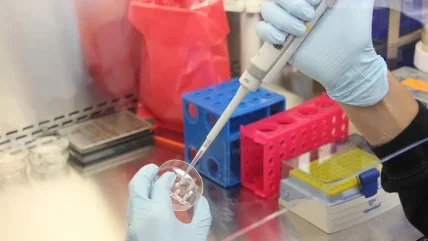
US-based programmable cell therapy company Arsenal Biosciences (ArsenalBio) has secured $325m in an oversubscribed Series C financing round to advance its CAR T-cell therapies.
New investors ARCH Venture Partners, Milky Way Investments Group, Regeneron Ventures, NVentures, Luma Group, funds accounts advised by T. Rowe Price Associates, and Rock Springs Capital, among others, participated in the funding round.
Other participants include existing investors Parker Institute for Cancer Immunotherapy (PICI), SoftBank Vision Fund 2, Bristol-Myers Squibb, Westlake Village BioPartners, Kleiner Perkins, Byers Capital, and Hitachi Ventures.
ArsenalBio intends to use proceeds from the financing to advance the development of lead candidates in its portfolio of therapeutics for solid tumour cancers.
The company is developing its portfolio based on its unique T-cell engineering technology, including logic gating.
ArsenalBio will also use the funds to further develop tools and processes for identifying new candidate cell therapies, addressing unmet needs across the oncology category.
ArsenalBio co-founder, CEO and chairman Ken Drazan said: “Our initial clinical trials and preclinical studies have shown the promise of our T-cell engineering approach and have given us the confidence to broaden the application of our technology to address additional cancer types.
“This new investment enables us to continue our development roadmap, scale up our manufacturing capabilities, and invest in new avenues for innovation in T-cell medicine.”
ArsenalBio is a clinical-stage cell therapy company focused on discovering and developing a pipeline of next-generation autologous T-cell therapies to treat cancer.
The company’s pipeline includes potential therapies in development for ovarian, kidney, and prostate cancers, along with other solid tumours co-developed with Bristol-Myers Squibb.
Its R&D platform is designed to create multifunctional T-cell medicines, enabled by precise insertion of CRISPR-mediated large synthetic DNA cassettes.
ArsenalBio said that the recent fundraising will allow the launch of its second T-cell candidate, AB-2100, currently in a Phase 1/2 clinical trial for clear-cell renal cell carcinoma (ccRCC).
The T-cell candidate received the US Food and Drug Administration Fast Track designation.






